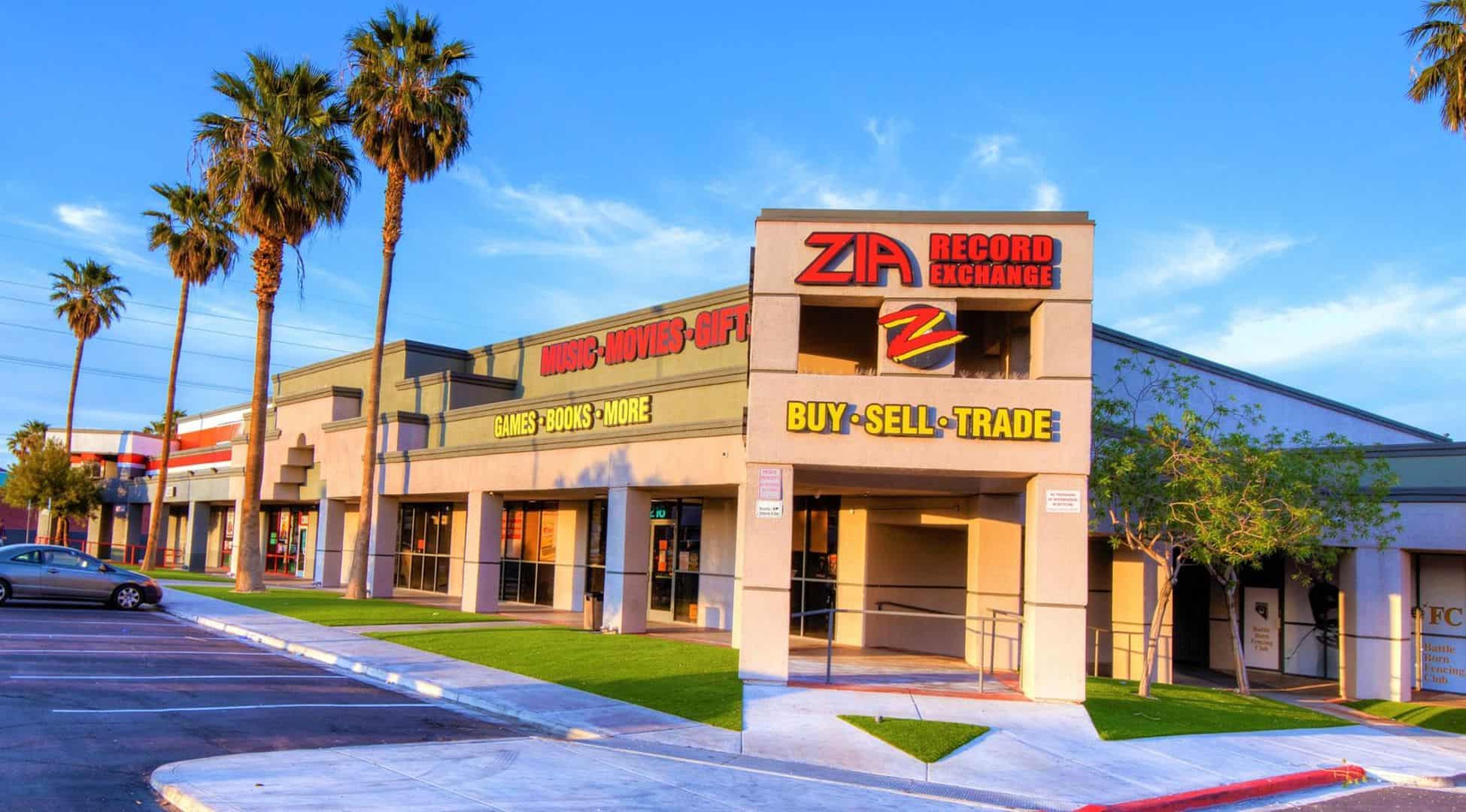

When we were in Albuquerque, disco was a thing. We never listened to Fleetwood Mac, because, “We can’t listen to that.” He was really into Zappa and liked Gram Parsons, too. Sandra: It wasn’t necessarily mainline music. He had a huge collection and diverse tastes.

John Dixon, Arizona music historian: Brad put up his own records to start the first store until stuff started coming in. We came back, he got a loan from his mom, and opened the first store. That’s where we got the name Zia, because we loved living in Albuquerque. Then we went to Albuquerque and lived there for about a year and a half and managed the Odyssey Records there. We went to Ogden, Utah, and he was assistant manager. New Times archives Sandra: We hit the road when he worked for Odyssey Records. In a world of lazy hippies at the time, Brad was the complete opposite. Jim Tessier, Singer’s former co-worker at Odyssey Records: Brad managed the 8-track and cassette tapes at Odyssey on Camelback. He tried branching out by working at Bill’s Audio and setting up stages. Probably around 16 - I think that’s when he got a serious interest in music and wanted to do something in that. Sandra Singer, Brad Singer’s ex-wife: Brad didn’t have a work ethic until he found his niche. When Singer was growing up in Phoenix in the 1960s, he dreamed of becoming a rock god or stand-up comedian. Below, we’ve assembled a playlist of memories from the many folks - employees, longtime patrons, local musicians - who were along for Zia’s wild ride over the last four decades (and counting). By the time he died in 1998, he had revolutionized the business of buying, selling, and trading music in Arizona.īut we’re getting ahead of ourselves. By the early ’90s, Singer owned multiple stores in the state, his own distributor, and an indie label. Zia became a wayward home for weirdos, both in front of the counter and behind it.įrom these humble beginnings, Singer spawned a retail and cultural empire that would expand to Tempe, Tucson, and eventually beyond Arizona.

The people came, and they kept coming: vinyl junkies looking for a new place to get a fix, punks crawling out from the underground. He catered to music fans and collectors, worked 12-hour days, and built a following through old-fashioned word-of-mouth. A die-hard music lover, Singer opened Zia with records from his collection, a loan from his mother, and homemade bins built from 2-by-4s. It was a tiny, idiosyncratic shop with an indie/underground bent, an oddball staff, and an emphasis on quality used music. Singer launched the chain in 1980 from a single store at 19th Avenue and Indian School Road in Phoenix. One side features the phrase “Zia takes the hits” the other has a goofy, gonzo-like photo of the face of Zia’s founder, Brad Singer. Perhaps the rarest piece in the collection is a bright-red paddleball game, a holiday gift given out to Zia employees that dates back to the 1990s.
Zia records archive#
“We need to get everything into an actual archive someday,” says Jason Woodbury, Zia’s marketing director, “but we haven’t gotten around to it, ’cause we’re constantly busy.” A whole bunch of Best of Phoenix awards from the publication you’re currently reading. Architectural plans for Zia’s first Chandler store.

A stack of locals-only compilations, released by Zia. A giant black Against Me! poster, used for previous in-store appearances at local Zia stores and autographed by the members of the band, adorns one wall on the other side of the room, an old refrigerator door covered in 2000s-era Zia stickers leans against another.ĭig around and you’ll find recent collectibles (Baby Yoda Chia Pets!) located near guitar-shaped pizza cutters. For now, though, it’s the headquarters and warehouse of Arizona’s most essential independent record store chain: Zia Records.įramed gold records - recognition for selling unholy amounts of Incubus and Linkin Park CDs - hang above the doors to the offices. Properly organized, the 16,000-square-foot building at 16th Street and Indianola Avenue in midtown Phoenix could serve as a kind of museum - a collection of pop-culture memorabilia and music artifacts from the last 40 years.


 0 kommentar(er)
0 kommentar(er)
